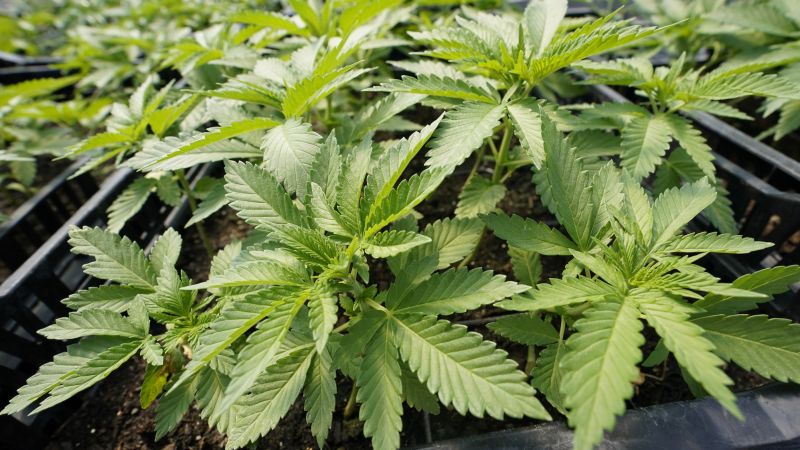The Importance of the Biden Voting Vote on Legalized Marijuana: A Case Study in Arkansas, Maryland, Missouri, North Dakota and South Dakota
In October, the Biden administration said that the president had pardoned people who had been convicted of federal marijuana possession.
Marijuana legalization is on the ballot in Arkansas, Maryland,Missouri, North Dakota and South Dakota next week, a reflection of the growing momentum nationally to lift penalties for the drug.
On an issue such as building a wall along the US-Mexico border, the partisan gap is closer to 80 points instead of 20 to 30 points as it is with marijuana.
We see this when we look at the ballot measures on marijuana. Colorado and Massachusetts have a lot of people with college degrees. It has also been legalized via the ballot in states where far fewer voters have college degrees, such as Michigan and Nevada.
Likewise, it has passed in the swing state with the highest proportion of White voters (Maine) and the lowest (Nevada). Nevada is also a state with one of the highest percentages of Hispanic residents in the country. This year, passage in a state with one of the highest proportions of Black voters (Maryland) seems all but assured, based on the polling.
A proposed constitutional amendment in Missouri will give voters the option to end prohibitions on marijuana in the state and allow personal use for those over the age of 21.
Melissa Fults, a board member of the Arkansas chapter for the National Organization for the Reform of Marijuana Laws, known as NORML, has expressed dismay about the proposed amendment because she says it would create a “huge monopoly” for Arkansas’ cultivators and retailers. The initiative would create 12 additional cultivation facility licenses and a lottery for 40 additional adult-use dispensary licenses to join the 80 that will be given to existing medical dispensaries.
The Family Council Action Committee, which is typically on the opposite side of NORML when it comes to relaxing marijuana laws, also voiced concerns over proposed regulation.
The petition also states that all cannabis will be tested in a facility “for the potency of products and the presence of pesticides” and that cannabis businesses will be subject to random inspection.
If Measure 27 is passed again, there will be a new governor in South Dakota who will implement the nullification process once again, according to CNN.
Biden also tasked the Department of Health and Human Services and Attorney General Merrick Garland to “expeditiously” review how marijuana is scheduled under federal law, the first step toward potentially easing its federal classification.
Under the 1970 Controlled Substances Act, marijuana is listed on Schedule 1, with drugs like heroin and LSD, meaning it has “no currently accepted medical use and a high potential for abuse.” But in recent years, its medicinal benefits have become more acknowledged.
